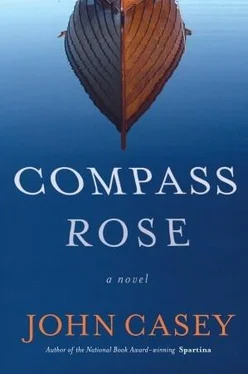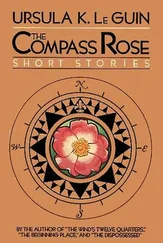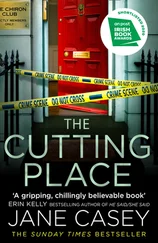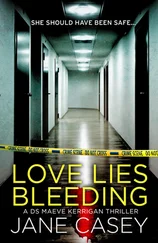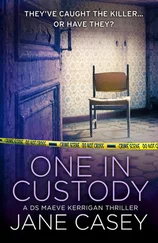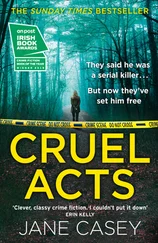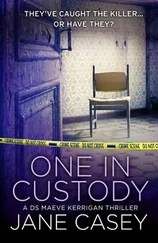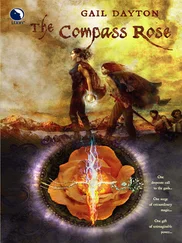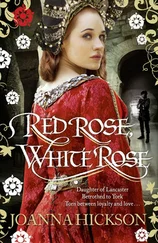Jack sent Elsie a copy of the plans for his new property. The attached handwritten note read: “To save you another trip to my office.” The first page showed a bridge across Pierce Creek and a raised boardwalk leading to a gazebo in the nature sanctuary. The architect’s drawing included a woman in a wheelchair on the boardwalk. Jack included a copy of a letter from Elsie’s old boss at Natural Resources, approving the plan and praising Jack for “encouraging public access in a way that minimizes impact on the environment.”
Elsie leafed through the plans in a rush of anger. The second time through she made a more careful and bitter assessment. The wheelchair was a shrewd touch. Natural Resources was always on the defensive about access to nature for the disabled.
Page two was a map that showed a small parking lot in place of Dick’s front yard, another smaller footbridge across the creek, and a path and a ramp to the boardwalk. All in all, Jack would lose only a narrow strip of the three acres to the general public. The royal road was from Sawtooth, across the downstream edge of Dick’s three acres. There was plenty of room for the three new cottages, daintily sketched in. The contractor for the boardwalk, bridges, gazebo, and cottages was to be Wormsley and Fitzgerald. So Eddie and Phoebe had rolled over. And, Elsie noticed, the company was no longer Wormsley and Son. Had Phoebe finally edged Walt out? Or did Walt just get an urge to ride off on his motorcycle into the north woods? A small bubble of relief there.
Page three was another map. Everett Hazard’s old barn was to be the Hazard Memorial Library. The house was still there, labeled “private dwelling,” and in the field two more cottages. So — six house sales and six new Sawtooth memberships — Jack would rake in almost two million dollars. Of course, he’d have to pay Eddie’s company to build the five cottages. Those would cost Jack — what? — a half million. And Jack would have to pay something to Mary and JB, but just the difference between the Hazard property and Mary’s old restaurant. For Dick and May, Jack was throwing in a small rickety house in Snug Harbor and an unplowed field that didn’t even border a paved road — getting those items off his books. She was pretty sure he had a tax dodge in there somehow. By her rough calculation Jack would come out with a net profit of a million and change. Jack’s making money wasn’t painful in itself; he’d always been annoyingly rich. It was his triumph that was hateful. Half by bullying, half by finagling, he’d rearranged people’s lives and won. What’s more, she counted it as his fault that she was angry with most of the people she cared about.
She was about to shriek when Rose emerged from her bedroom. Half asleep, she shuffled to the bathroom. Midday. Rose’s diva schedule.
Elsie had given in to the show at Sawtooth. Rose had sat across from Elsie at the dining table and listed the arguments for her singing and not singing, laying out the fingers of her right hand and her left hand.
“I owe it to the rest of the cast.” (Elsie recognized a Mary Scanlon note). “Of course, Uncle Jack deserves to be hurt. But May told me that she can’t bear it if I don’t sing. She says she’d feel worse about that than having to move. And she says they’re going to have to move anyway. But you think … you think I’d be a selfish little shit.”
Rose let her head fall on her hands and began to cry.
“No,” Elsie said. “I never said that.” She saw Rose as a child again. She saw Rose being pulled back and forth across the splinters of the grown-up fight with Jack. She said, “It’s okay, it’s okay. We did what we could. You did as much as anybody.”
Rose had kept on crying. “It’s okay,” Elsie said. “Mary wants you to sing. May wants you to sing.”
Rose lifted her head. Elsie waited for Rose to look at her, to look to her for the final word.
Rose sniffed and wiped her nose with the back of her hand. She went to the kitchen sink and splashed her face. “I guess,” Rose said. She patted herself dry with a dish towel. “I guess they know I’m only really happy when I’m—”
“Onstage.” Elsie didn’t mean it to sound as sharp as it came out.
“No,” Rose said. She turned around. She wasn’t angry. She sighed and said, “It’s not like that. It’s more like when I’m singing, I’m more music than I’m me.” She shrugged. “It’s hard to explain.”
Elsie was irritated by Rose’s “I’m more music than I’m me,” dismissed by Rose’s “It’s hard to explain.” She’d been trying to comfort Rose, she’d invoked Mary and May. She’d hoped, of course, that Rose would come back to her. All right, then. It wasn’t enough to be moved by Rose’s tears and to coo a few soothing words. And she hadn’t even done that all that well. “Only really happy … onstage.” That toad of a remark had hopped out of her mouth before she could stop it — a reflex of all her old quarrels with a difficult child.
Lucky for Rose, then, that she had Mary and May to swaddle her. Elsie didn’t let that thought hop out of her mouth. With some effort, she said, “Rose. Rose, I know that sometimes I’m a difficult mother.”
“It could be worse.”
Elsie had laughed.
And now here was Rose at midday in her nightgown and bathrobe. Elsie erased the word diva from her thoughts. She said, “How’d it go?”
“Fine.”
“You want some breakfast?”
“Maybe later.”
“You know, if you don’t eat at least a little breakfast the first hour you’re up, your body thinks that—”
“I know, I know. I know what my body thinks, thank you.”
Rose stopped her slow shuffle and shook her head. She turned toward Elsie. “Mom, I almost forgot. Tomorrow’s the day everyone’s going to help May with her new field. Well, not everyone. Mary’s got to work at Sawtooth, but JB’s going, and Deirdre and—”
“I know. Deidre’s picking me up in her jeep.”
“I’m going but not till later. May said I should sleep in. So I hope you can get there early.”
“I’ll be early.”
“This means a lot to May after everything that’s happened.”
“I know.”
“You were late when we all went to May’s house.”
Elsie waited until Rose was brushing her teeth, her knuckles stopping her mouth while she worked on her back molars. Elsie said, “Let’s try to change the rhythm. I may have a tin ear, but I’ve got a sense of rhythm. So I won’t nag you, you won’t nag me. I’ve been angry at Jack and in a bad mood because I screwed up. You’re working hard, you’re doing a grown-up job, and you should get to be a little temperamental.” Rose pulled the toothbrush out and leaned over to rinse her mouth from the spigot. Elsie said, “But I think we could both—”
“Mom, I get it.”
When Elsie got to the field she recognized the place. At first she just took in Eddie on his tractor and the little crowd of volunteers, but then she saw the row of black locusts. Her sticks were still there, the two top ones dangling askew.
It took them a while to get organized, since Eddie kept deferring to May and May kept deferring to Eddie. Phoebe said, “You’ve got a plan, Eddie. Don’t keep it a secret. I’ve got to get back to Sawtooth.”
Everyone got a crowbar or a spade and lined up. Eddie said, “Okay — put the rocks here in my front scoop. When I’ve got a load, I’ll dump them over there. If you’ve got a crowbar, stick it in a ways. If you hit a rock, find an end and pry her up. Get someone with a spade to dig around and loosen her up.”
The grass was still wet with dew, but the sun was high enough to make it hot. Before long their boots and pant cuffs were soaked and their shirts were getting wet with sweat. Eddie’s tractor engine chugging along behind them was noisy enough, but it was the rocks clattering into the front scoop that made conversation impossible.
Читать дальше
